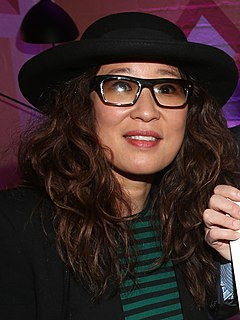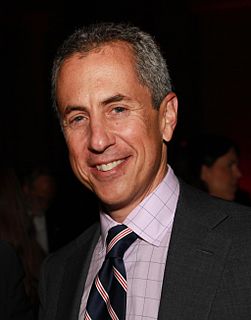A Quote by Nick Woodman
Bootstrapping allows you total creative freedom. For example, if you decide to approach your business in a certain way that makes it a two- or three-year process to get to your first product, you can do that, versus being rushed into it by investors.
Related Quotes
It's a funny line when you're walking - the creativity, the subjectivity versus the objectivity, creativity versus the business, and recognizing that you are in the music business, so there are certain things that you have to acquiesce to on the business side and certain creative decisions that you have to make for the purposes of serving the business side of it.
The creative process is just a process and you can't really separate it from life. Growing your hair is a creative process. Your body is creating hair. Being alive is a creative process. Whether it's growing something in the garden or growing a song, the material accumulates. It's the process of being alive; it's the passage of time. Things change.
I don't think people get the pressure of becoming famous and what it does for an artist. What does that for your creative self. And what that can do for your mental health. And I would say, from year two to year six or eight of 'Grey's,' it was extremely difficult and very stressful and traumatic, if I'm being honest.
If you live in a society where those who govern society and determine its path do not respect freedom of speech and freedom of religion, freedom of choice, freedom of assembly, and if there is no democratic process and no way to change the order of things by reason and peace and love and so on, and if, as a result of that, certain ideas in which you believe are being crushed, then I think the only way you can defend yourself against this violence is in using violence of your own.
No one can stop or control your thought process or your thinking. You can think anything you want. But that doesn't seem to be the point. The thinking process has to be directed into a certain approach... not in accord with certain dogma, philosophy, or concepts. Instead, one has to know the thinker itself.
Customers are a great way to finance a business for many reasons. First, customer financing is typically non dilutive. They want something from you other than equity in your business. Customers also help you fit your product to the market. And customers will help debug and improve the quality of the product.
The approach and strategies are very similar in that you gather all the information you can and then keep adding to that base of information as things develop. You do whatever the probabilities indicated based on the knowledge that you have at that time, but you are always willing to modify your behaviour or your approach as you get new information. In bridge, you behave in a way that gets the best from your partner. And in business, you behave in the way that gets the best from your managers and your employees.
Separate out the creative act from the act of editing and execution. Make it a two-step process. First, let ideas flow and encourage EVERY idea to make it to the whiteboard. Don't criticize, judge, edit, budget, or worry. An idea on the wall can't hurt anyone, so let them rip without restriction. After any and all ideas have the opportunity to "come out to play", only then should you apply your analytical and logical side to the effort. Don't mix the creative process with the editing process or you'll kill your ideas before they even get a fighting chance.
User experience is really the whole totality. Opening the package good example. It's the total experience that matters. And that starts from when you first hear about a product experience is more based upon memory than reality. If your memory of the product is wonderful, you will excuse all sorts of incidental things.
When you are incubating new ideas, "Don't put all your eggs in one basket" is very good advice. But when you are seeking to transform your enterprise's portfolio by scaling a fledgling business to material size - say ten percent of total enterprise revenue - then it is imperative that you make that the singular focus of everyone in the enterprise for the two to three year period it is likely to require to reach its tipping point. Expecting to do two such scaling efforts in parallel is simply folly, yet that is what the "eggs/basket" idea is often used to justify.


































